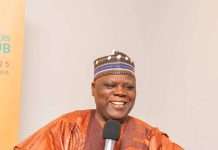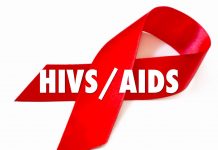
Pharm. Bruno Nwankwo is an octogenarian pharmacist, a Fellow of the Pharmaceutical Society of Nigeria (PSN) and former chairman of the Pharmacists Council of Nigeria (PCN). He is also a pharmaceutical industry guru, having spent over two decades of his career in industrial pharmacy practice, where he not only rose to top executive positions at CIBA GEIGY but also helped to birth the Nigerian affiliate of the company. He also helped to set up the company’s manufacturing facility in Ota, Ogun State, before his retirement in 1992.
In this special interview with MOSES DIKE, Nwankwo who is now partly resident in the Unites States of America, reveals how the Nigerian pharmaceutical industry can improve, borrowing from the US experience. He also reminisces about his childhood and other significant events in his earlier years, while offering valuable advice to younger pharmacists on to how maximize their training for the benefit of humanity. Excerpts:
Kindly tell us some of your early childhood experiences and the events that have helped to shape your adult personality.
I was born in September 1939, in Umuahia (Abia State), and my early life was spent in Umudike, where my dad was a staff of the Rural Education Centre. Being a teacher’s son, I was privileged to start school at the recommended age of five at St. Anna’s School, Ahia Eke, Ibeku, also in Abia State. I was enrolled into Class 1B, which today is referred to as the kindergarten class.
When my family travelled home to Ajalli (now Anambra State), for my father’s annual leave in December 1948, my parents left me in the village to continue my education at Government School, Ajalli. This practice was fairly common in those days. Dad had arranged that I live with a teacher in the school, who was his friend.
Life in the village was exciting but quite different from what you may call “city life” in Umuahia. I stayed in Ajalli, until October 1952, when I left for my secondary school education at Government Secondary School (GSS), Owerri – the school that largely made me.
GSS Owerri was one of the three secondary schools for boys run by the Eastern Nigeria Government, which, due to its appropriate funding, offered many opportunities in sports and academics. I was not found wanting in either of these. As is often said, “I did not just go through OGSS; the school indeed also went through me”, and I owe so much to my alma mater for who and what I have achieved.
By 15 September this year, you will clock 83 years of age. What does this new age mean to you and how does being an octogenarian affect your perspective of life? Are there new feats you still hope to achieve?
I am in my 80s now and rightly among the elders of Pharmacy in Nigeria. I count this a privilege and remain grateful to God that I belong here. Since my days in the university, I have identified with efforts to make Pharmacy in Nigeria a better profession. I was active in PANS (Pharmaceutical Association of Nigeria Students) and served in its executive committee while at school.
And in my brief stint in hospital pharmacy, I was active in the Nigeria Union of Pharmacy – the pharmacists group within the labour movement – producing position papers and materials for numerous petitions that preceded the recognition of Pharmacy in the professional cadre of the Nigerian Civil Service.
By the way, it was not until the early 70s that pharmacists were appointed into the grade for professionals. Prior to that, pharmacists were in the technical cadre.
My generation rightly paid its dues and, today, in retirement, we can look back and proudly cherish our contributions to what is today Nigerian Pharmacy.
You were among the first set of pharmacy students to obtain B. Pharm degree from the University of Ife, now Obafemi Awolowo University (OAU), Ile-Ife. How did the choice of Pharmacy as course of study come to you and what was the experience like studying in a pioneer B. Pharm class?
Growing up, I wanted to care for the sick and belonged to the First Aid team at school. We associated caring for the sick in the hospital with doctors and nurses. There were no pharmacists in the hospital. Medicines were handed out by dispensers.
After my West African School Certificate, in December 1957, I applied to and was admitted to the Nigerian College of Arts, Science and Technology, Enugu Branch, as a Pre-Medicine student and I registered for Physics, Chemistry and Zoology. The Pre-Pharmacy students were admitted for Physics, Chemistry and Botany.
It was here that I learnt of Pharmacy and my interaction with these classmates opened my eyes to a possibility of such a career. But my flirtation with it only started when Government announced suspension of Federal Scholarships for Medicine but not so for Pharmacy.
Following weeks of hard thinking, I wrote to my father to suggest my desire to change my course to Pharmacy. To my relief, he had no objection and I followed up with a formal application to the College.
With success in the GCE A Level, we were admitted to the Department of Pharmacy in the Nigerian College, Ibadan Branch, to study for the Diploma in Pharmacy, which I obtained in 1963. However, in our Second Year, the College transformed to the nucleus of the new University of Ife and we were given the opportunity to return in the final year of the B. Pharm students to graduate with them in the 1965/66 session.
Tell us about your work experiences. Which of them did you find most exciting and why was it so?
Upon gaining the diploma, I got registered as a pharmacist and reported to the Federal Ministry of Health to serve as required by a condition of my scholarship. I was posted to the Lagos Island Maternity Hospital. I had no job satisfaction. I sought and resigned after a year to join NIGARCO – a pharmaceutical company – as a medical representative and worked there until September 1965, when I returned to the University of Ife for the B.Pharm.
I graduated in 1966 with the premier University of Ife class and was employed as a graduate assistant in the Virology Unit of the UCH Ibadan. Unfortunately, I served here for only three months before the Nigerian civil war forced me back to my region and I went back to hospital pharmacy at General Hospital, Enugu.
During the Biafran War, I served with the Red Cross, where I managed their medical stores. At the end of the hostilities in 1970, I returned to the civil service and was posted to General Hospital, Onitsha.
My passion was for a place in industry and my opportunity came in 1970. CIBA-GEIGY offered me a job as a medical representative in Lagos. This was the start of a 22-year career and I progressed through product management to become head of the Pharmaceuticals Division and subsequently executive director.
In this capacity, I was responsible for the company’s pharmaceutical business in Nigeria and the Anglophone West African region. I retired in 1992 to become the chairman of Swiss Nigerian Chemical Company Ltd – the Nigerian affiliate of CIBA-GEIGY. During this period, the company established a pharmaceutical manufacturing facility in Ota.
In order to jointly tackle the regulatory and various adverse issues that confronted our business, managers of pharmaceutical companies in Nigeria held regular lunch meetings and ultimately joined the Lagos Chamber of Commerce and Industry as its Pharmaceutical Group. I had the privilege to succeed Pharm. Anyafulu as chairman of this group in 1986 and remained so until my retirement in 1992.
As chairman, we encouraged the formation of the Industrial Group of the Pharmaceutical Society of Nigeria which has blossomed to the NAIP (Association of Industrial Pharmacists of Nigeria).
Having had a stint in the Nigerian pharmaceutical industry and now partly resident in the USA, what policies or practices in the US would you like replicated here in Nigeria?
For some years now, I have had extended stays in the US and observed the practice of Pharmacy in that country. From my observation, the healthcare professions and providers are more strictly regulated. All practitioners understand their roles and are supportive of one another.
The competition and encroachment prevalent in the practice in Nigeria does not exist. Infractions are promptly recognised and penalised. Consequently, all healthcare providers practise as expected, and get the expected outcomes, vis-a-vis rewards and job satisfaction.
We should, however, note some factors which militate against us in Nigeria as follows: poverty and low literacy rate; low health insurance coverage; low pharmacist-to-population ratio etc. These encourage impersonators and charlatans who unfairly compete with the professionals. Elimination of these persons from the healthcare space will make a remarkable difference.
Tell us also about the low moments. Are there incidents or events in your years of practice that you wish never happened or should have happened differently? If you have the opportunity, is there anything about your life and career you would like to change?
On 4 May, 1966, I lost my father. This was a very devastating event. It was less than three weeks to my B.Pharm exams and I was distraught. Conflicting thoughts took me over. I was the eldest child of my family, so it was a life-changing event.
I remain grateful to my friends in NIGERCOL (as we called the Nigerian College), and in the neighbouring University of Ibadan, whose support helped me to get over my initial grief and to strategize on necessary next moves.
Despite the imminent degree exams, I travelled to Lagos that day to initiate plans for the funeral in my village. This was, with the cooperation of all necessary parties, done within a week and I returned in time for my exams.
Graduating just before the civil war posed several challenges among which were living in uncertain times, when there was no room for long-term planning – life, place of residence etc. – and what you did from day to day were uncertain. However, despite the vicissitudes of Iife in those days, I would still count them as very productive because you lived every day and there was no room for procrastination.
Tell us a little about your family. Did any of your children take after you to study Pharmacy or other health-related professions?
I married my wife, Lois, in 1971 and we have five children, one of whom is a pharmacist, although she is not actively practising Pharmacy. She graduated in the United States and returned to Nigeria with her husband. After a brief time as a community pharmacist, she was frustrated, unable to be as adaptive as our colleagues there. She returned to school to obtain a Master’s in Public Health and now works with an NGO.
How do you relax? Tell us about some of the pastime activities and lifestyle modifications you have adopted to stay fit and active.
As a young man, I actively played cricket and lawn tennis but, with age, I relax by playing golf. Today, with body pains and other health issues, I now mostly walk or use the tread mill.
Finally, what advice would you give to the younger generation of pharmacists on how to make the best use of their calling as healthcare professionals to impact humanity positively?
Pharmacy has been good to me and I have served it in various capacities offered to me, including as an officer in the PSN executive, being chairman of a Conference Planning Committee or the Board of Fellows. More especially, I have enjoyed the opportunity to briefly serve as the chairman of the Pharmacists Council of Nigeria.
My advice to pharmacists, especially the young ones, is to deliberately choose the aspect of Pharmacy they are passionate about and locate themselves there.
Success may not come immediately or even soon; but you will, at the least, have job satisfaction and be fulfilled.











